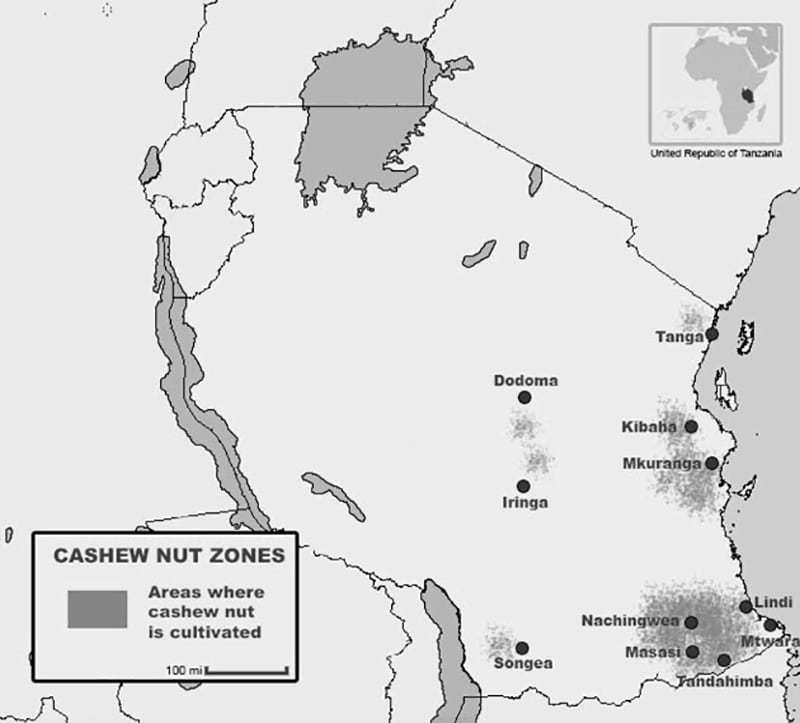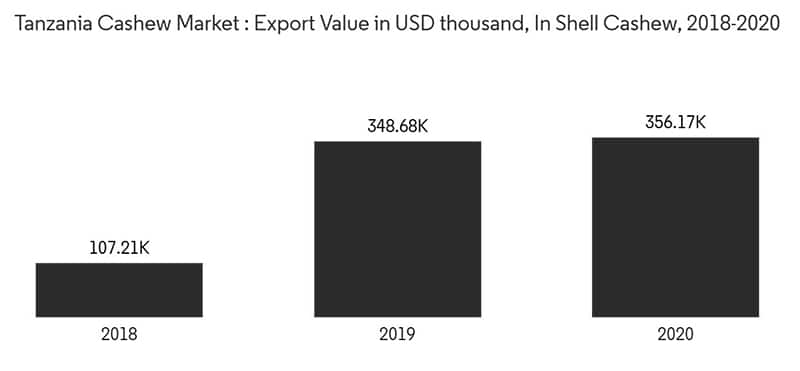Navigating the Cashew Market in Tanzania: Understanding Price Trends and Opportunities for Farmers
Are you a cashew farmer in Tanzania looking to navigate the ever-changing cashew market? Look no further! This article is your ultimate guide to understanding the Tanzania cashew price trends and identifying opportunities in the cashew market. With the global demand for cashews on the rise, it is crucial for farmers to stay informed and make informed decisions. We will delve into the factors that influence cashew price in Tanzania, from weather conditions to global market trends, and explore how farmers can leverage these insights to maximize their profits. Whether you are a seasoned cashew farmer or just starting out, this article will provide you with the knowledge and strategies you need to navigate the cashew market in Tanzania successfully. Let’s dive in and unlock the potential of this lucrative industry together!
Overview of the Cashew Industry in Tanzania

Tanzania is one of the largest producers of cashew nuts in Africa, with an ideal climate and fertile soil that make it a prime location for cultivating cashew trees. The cashew industry plays a significant role in the country’s economy, providing employment and income for thousands of farmers across the country. The cashew sector has seen steady growth in recent years, with an increasing number of farmers turning to cashew farming as a profitable venture. Tanzania’s cashew exports have also been on the rise, making it a competitive player in the global cashew market.
However, despite its potential, the cashew industry in Tanzania faces various challenges. The fluctuating global market prices and the vulnerability of cashew crops to weather conditions can pose risks to farmers’ incomes. In addition, the lack of access to modern farming techniques and limited infrastructure for processing and storage can hinder the industry’s growth. Despite these challenges, there are opportunities for cashew farmers to thrive in the market by understanding the price trends and adopting best practices in cashew farming.
Understanding Cashew Price Trends
Tanzania raw cashew price is influenced by a variety of factors that can fluctuate both locally and globally. Understanding these trends is essential for cashew farmers to make informed decisions and maximize their profits. One of the primary factors influencing cashew prices is the global demand for cashews. As the popularity of cashews grows worldwide, the demand for high-quality cashews increases, leading to higher prices in the market. Cashew prices are also affected by factors such as supply and demand dynamics, weather conditions, and market speculation.
Global market trends can have a significant impact on cashew prices in Tanzania. For example, if there is a sudden increase in demand from a major cashew-consuming country, prices may rise due to limited supply. On the other hand, if there is a surplus of cashews in the market, prices may decrease. Weather conditions, such as droughts or heavy rains, can also affect cashew prices by impacting crop yields. It is important for farmers to stay updated on these trends and adjust their production and marketing strategies accordingly.
Factors Influencing Cashew Prices in Tanzania

In Tanzania, several factors influence cashew prices, both in the local and global context. One of the main factors is the quality of cashew nuts produced. Cashews that meet high-quality standards, such as size, color, and taste, command better prices in the market. Farmers can improve the quality of their cashews by implementing good agricultural practices, such as proper harvesting, drying, and storage techniques. Investing in modern farming equipment and technologies can also help enhance the quality of cashews produced.
Another factor that affects cashew prices in Tanzania is the level of competition among buyers. When multiple buyers are competing for cashew nuts, prices tend to be higher. Farmers can explore different marketing channels and establish relationships with multiple buyers to leverage this competition and negotiate better prices for their produce. Additionally, the availability of infrastructure for processing and storage can impact cashew prices. Having access to proper processing facilities and storage warehouses can help farmers maintain the quality of their cashews and avoid price fluctuations due to spoilage.
Opportunities for Cashew Farmers in Tanzania
Despite the challenges faced by cashew farmers in Tanzania, there are several opportunities for them to thrive in the market. The increasing global demand for cashews presents a significant opportunity for farmers to expand their production and tap into new markets. Cashews are not only consumed as a snack but are also used in various food products, such as confectionery, bakery items, and dairy alternatives. By diversifying their products and exploring value-added opportunities, farmers can increase their income and profitability.
Furthermore, there is a growing trend of consumers seeking organic and sustainably produced cashews. Cashew farmers in Tanzania can capitalize on this trend by adopting organic farming practices and obtaining certification. Organic cashews are often sold at premium prices in the market, providing farmers with an opportunity to earn higher incomes. Additionally, there is a rising demand for fair trade cashews, where farmers receive a fair price for their produce and are supported in their social and environmental initiatives. Participating in fair trade programs can open up new market opportunities and improve the livelihoods of cashew farmers.
Best Practices for Cashew Farming in Tanzania
To navigate the cashew market successfully, it is crucial for farmers to adopt best practices in cashew farming. One of the key aspects of cashew farming is proper crop management. This includes selecting suitable cashew varieties, ensuring proper spacing between trees, and implementing good agricultural practices, such as regular pruning and pest control. Farmers should also pay attention to soil fertility and ensure the use of organic fertilizers and sustainable farming techniques to maintain soil health.
Another important aspect of cashew farming is post-harvest management. Proper harvesting and processing techniques are essential to maintain the quality of cashews and maximize their market value. Cashews should be harvested when the nuts are fully ripe and allowed to dry naturally to the optimal moisture content. Farmers should also invest in proper storage facilities to prevent spoilage and maintain the quality of their cashews until they are sold.
In addition to crop management and post-harvest practices, farmers should focus on market intelligence and marketing strategies. Staying updated on the latest market trends, understanding buyer requirements, and establishing strong relationships with buyers can give farmers a competitive edge. Farmers can also explore value-added opportunities, such as processing cashews into different products, to increase their profitability. Investing in training and capacity-building programs can help farmers enhance their knowledge and skills in cashew farming and marketing.
Challenges Faced by Cashew Farmers in Tanzania
While there are opportunities for cashew farmers in Tanzania, they also face various challenges that need to be addressed. One of the significant challenges is the lack of access to affordable financing and credit facilities. Many cashew farmers struggle to access loans or credit to invest in their farms, purchase necessary inputs, and improve their farming practices. This hinders their ability to expand production and adopt modern farming technologies.
Another challenge is the limited availability of extension services and technical support for cashew farmers. Access to information, training, and technical assistance is crucial for farmers to improve their skills and adopt best practices. However, in many rural areas, cashew farmers have limited access to extension services, which hampers their ability to enhance productivity and profitability. Government and non-governmental organizations should work together to strengthen extension services and provide farmers with the support they need.
Furthermore, the lack of infrastructure for processing and storage is a significant challenge for cashew farmers. Without proper processing facilities, farmers are unable to add value to their cashews and may have to sell their produce at lower prices. Insufficient storage facilities also contribute to post-harvest losses and quality deterioration. Investments in processing and storage infrastructure can help farmers overcome these challenges and maximize their profits.
Government Initiatives to Support the Cashew Industry in Tanzania
The Tanzanian government recognizes the importance of the cashew industry and has implemented various initiatives to support cashew farmers. One of the key initiatives is the Cashewnut Development Program, which aims to increase cashew production, improve quality, and enhance farmers’ incomes. The program provides farmers with training, technical support, and access to improved inputs and technologies. It also promotes the establishment of cashew processing facilities and provides market linkages for farmers.
The government has also implemented policies to promote value addition in the cashew sector. This includes encouraging the establishment of cashew processing factories and providing incentives for value-added cashew products. These policies not only create employment opportunities but also increase the value of cashew exports, benefiting farmers and the economy as a whole. The government’s efforts to improve infrastructure, such as roads and irrigation systems, also contribute to the growth of the cashew industry.
Resources for Cashew Farmers in Tanzania
Cashew farmers in Tanzania can access various resources to enhance their knowledge and skills in cashew farming. The Tanzania Cashewnut Board (TCB) is a government institution that provides information, training, and technical support to cashew farmers. The TCB also facilitates market linkages and provides certification services for cashew exports. Farmers can also benefit from non-governmental organizations and agricultural extension services that offer training programs and capacity-building initiatives.
In addition to government and non-governmental resources, cashew farmers can leverage technology to access valuable information and resources. Mobile applications and online platforms provide farmers with real-time market prices, weather updates, and farming tips. These digital tools enable farmers to make informed decisions and stay connected to the latest developments in the cashew industry.
Conclusion
Navigating the cashew market in Tanzania can be challenging, but with the right knowledge and strategies, cashew farmers can seize opportunities and maximize their profits. Understanding the price trends, adopting best practices in cashew farming, and leveraging government initiatives and resources are key to success in this lucrative industry. By staying informed, investing in quality production, and exploring value-added opportunities, cashew farmers can thrive in the global cashew market. With the Tanzanian government’s commitment to supporting the cashew industry and the increasing demand for cashews worldwide, the future looks promising for cashew farmers in Tanzania. So, gear up, embrace the opportunities, and unlock the full potential of the cashew market in Tanzania!
For more articles related to Tanzania Immigration, click here!


































